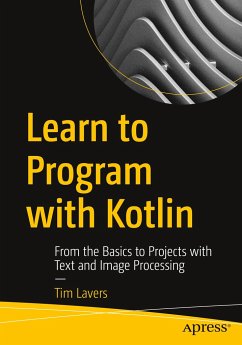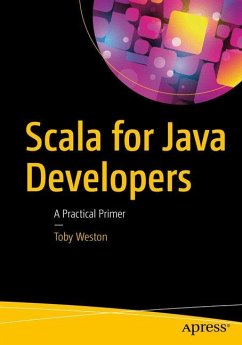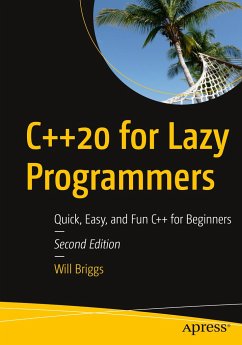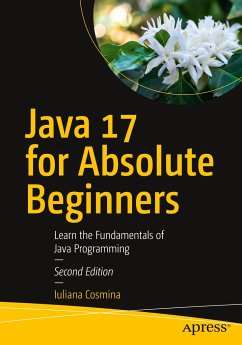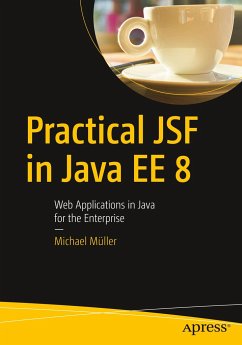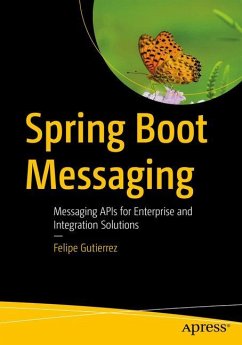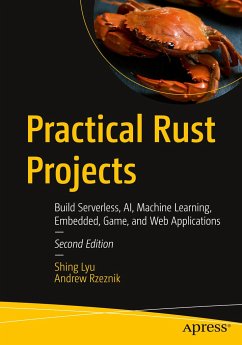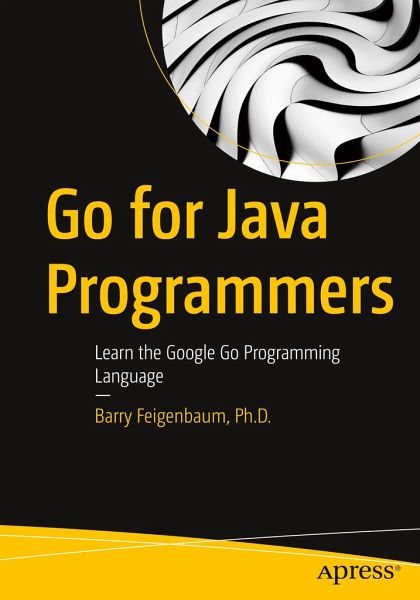
Go for Java Programmers
Learn the Google Go Programming Language

PAYBACK Punkte
25 °P sammeln!
Get an in-depth introduction to the Go programming language and its associated standard runtime libraries. This book is targeted towards programmers that already know the Java programming language and uses that Java knowledge to direct the learning of Go. You will get a deep understanding of the Go language and obtain a good introduction to the extensive Go standard libraries.This book teaches Go through clear descriptions of Go features, contrasting them with similar Java features and via providing extensive code examples. After reading this book you will be knowledgeable enough about Go and ...
Get an in-depth introduction to the Go programming language and its associated standard runtime libraries. This book is targeted towards programmers that already know the Java programming language and uses that Java knowledge to direct the learning of Go. You will get a deep understanding of the Go language and obtain a good introduction to the extensive Go standard libraries.
This book teaches Go through clear descriptions of Go features, contrasting them with similar Java features and via providing extensive code examples. After reading this book you will be knowledgeable enough about Go and its libraries to begin doing effective programming using the Go language.
Go for Java Programmers is structured more like a tutorial than a reference document. It covers key features of Go, but not every little detail as a reference might. Its goal is to get you competent enough in Go and its runtime that you can begin to effectively writeGo programs.
What You Will Learn
Examine the key Go Runtime libraries and how they compare to Java libraries
See when it is appropriate to use the Go language instead of the Java language Read and understand programs written in Go Write many programs in GoDetermine when Go is an appropriate language to develop applications inDiscover how the Go and Java languages and development experience compare and contrast
Who This Book Is For
Primarily existing professional Java programmers or students that already know something about Java. A basic understanding of Java is expected. Some basic programming experience with imperative languages is expected.
This book teaches Go through clear descriptions of Go features, contrasting them with similar Java features and via providing extensive code examples. After reading this book you will be knowledgeable enough about Go and its libraries to begin doing effective programming using the Go language.
Go for Java Programmers is structured more like a tutorial than a reference document. It covers key features of Go, but not every little detail as a reference might. Its goal is to get you competent enough in Go and its runtime that you can begin to effectively writeGo programs.
What You Will Learn
Examine the key Go Runtime libraries and how they compare to Java libraries
See when it is appropriate to use the Go language instead of the Java language Read and understand programs written in Go Write many programs in GoDetermine when Go is an appropriate language to develop applications inDiscover how the Go and Java languages and development experience compare and contrast
Who This Book Is For
Primarily existing professional Java programmers or students that already know something about Java. A basic understanding of Java is expected. Some basic programming experience with imperative languages is expected.




